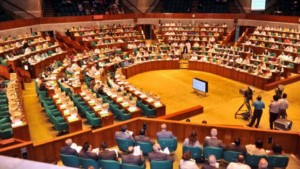European Central Bank policymakers are expected to hint Thursday at exiting their easy-money policy and offer a sunnier economic outlook for the eurozone, although analysts forecast only inching steps in coming months.
Most observers predict the bank’s 60-billion-euro ($67.4 billion) monthly bond purchases will continue and interest rates will remain at historic lows.
But they believe governors, meeting in the Estonian capital Tallinn, will lay the groundwork for an announcement later this year on winding down bond-buying, by offering a sunnier economic outlook for the eurozone.
“We expect the ECB to take the next step towards normalising its policy stance: sending cautious signals… that the time of exceptional monetary accommodation may soon come to an end,” said Alain Lemangnen of Natixis bank.
Bond-buying and low interest rates were introduced at a time when the ECB feared deflation—or steadily decreasing prices that undermine economic activity.
By pumping cash through the financial system and into the real economy, the bank believes it has stimulated growth and pushed inflation back towards its target of just below 2.0 percent.
Inflation has been on a rollercoaster ride in recent months, hitting the 2.0 percent target in February before falling back again in March.
The same pattern was repeated with a spike in April, to 1.9 percent, before a retreat in May.
Volatile food and energy prices are to blame for such rapid changes, policymakers say, while “core”, or underlying inflation discounting those elements remains sluggish.
ECB president Mario Draghi argues wages—which he dubs the “linchpin” of price growth—are not rising fast enough to drive inflation.
“Mario Draghi should thus recall that there are no signs of a convincing upward trend in underlying inflation yet,” Lemangnen predicted.
- Balanced risks –
In its carefully-weighed policy statements, the central bank has long warned of risks threatening the eurozone recovery.
It therefore includes reassurances that if economic activity slows,
policymakers could lower interest rates even further or boost bond-buying back to the previous 80 billion euros per month level.
With growth in the 19-nation eurozone at a healthy 0.5 percent in each of the past two quarters, most observers believe the time has come to be less tentative.
“Hard data will likely convince the governing council to turn less cautious and formally upgrade its growth outlook,” said Unicredit economist Marco Valli, predicting an ECB risk assessment Thursday “balanced” between positive and negative.
That would justify the bank dropping one or both options for further easing, signalling rising confidence in the economy.
Nevertheless, such a move would not herald a quick exit from bond-buying.
Draghi told European Parliament lawmakers last week he is “firmly convinced” the eurozone’s newfound robustness depends on ECB interventions.
The bank is expected to keep buying 60 billion euros of bonds per month until the end of 2017, with a gradual winding down, or “tapering”, of the purchases next year.
Meanwhile, policymakers have stuck to their insistence that any hike in interest rates will come well after the end of bond-buying.
June’s economic forecasts from ECB staff are expected to show lower inflation expectations than previously, lending support to governing council members who want to stay the course.
- Softly softly –
The ECB is keen to avoid financial market upsets as it heads for the exit from its bond-buying programme.
Removing its demand for government bonds from the market could drive up yields, the returns investors can expect when buying government debt, for the eurozone’s weaker economies.
But it is also under pressure to end the scheme, as some governing council members believe it is no longer justified without deflation risks.
Meanwhile, pressure from politicians in fiscally conservative countries like Germany is mounting over low inflation’s impact on savers.
German Finance Minister Wolfgang Schaeuble has also blamed the ECB for trade tensions with the United States, charging that the bank’s policy makes German exports too cheap.
And technical considerations could soon limit the number of government bonds available for the ECB to buy, cramping the programme’s effectiveness.
Even given those constraints, “the intention [of the ECB] is to make any rhetoric shifts as gradual as possible, in order to reduce the probability of an unwarranted tightening of financial conditions,” Unicredit’s Valli argued, reports AFP, Tallinn.



